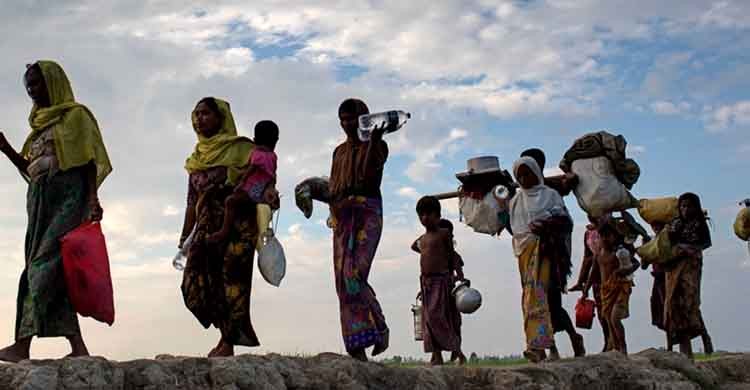UN court to open hearings in Rohingya genocide case
21 February 2022, 08:04 pm | Updated: 19 April 2025, 09:01 pm

Myanmar’s shadow civilian administration called on the United Nations’ top court today not to allow the country’s military rulers to represent the Southeast Asian nation at hearings into a case accusing the country of genocide against the Rohingya ethnic minority.
Four days of hearings into the Myanmar military’s deadly 2017 crackdown on the Rohingya are scheduled to open Monday afternoon at the International Court of Justice amid a dispute over who should represent the country in court.
REED MORE: ASEAN special envoy urged to meet Aung San Suu Kyi
Representatives of Myanmar are scheduled to address judges to outline why they believe the case that was filed by the African nation of Gambia, representing a group of Muslim nations, should be dropped, reports AFP.
But members of Myanmar’s National Unity Government, urged the court not to accept representatives of the military rulers.
“We do not believe that the International Court of Justice will want to allow the military to appear before them as if they speak for the Republic of the Union of Myanmar,” said the unity government’s foreign minister, Zin Mar Aung. “It would be a most profound injustice to the Rohingya if the military were to be both their abusers and have any voice in the court.”
The shadow administration said it has contacted the court to withdraw Myanmar’s preliminary objections to the case, but it remains to be seen whether the court will recognize the unity administration.
The shadow administration is made up of a diverse group of representatives including elected lawmakers who were prevented from taking their seats by the military takeover. It says it is the country’s only legitimate government but no foreign government has recognized the unity group.
The dispute at the world court in The Hague reflects a broader struggle in the international community over whom to accept as Myanmar’s legitimate rulers in the aftermath of the coup.
Southeast Asian foreign ministers held their annual retreat last week without their counterpart from Myanmar, who was blackballed from participating but allowed to attend online as an observer.
The military launched what it called a clearance campaign in Rakhine state in 2017 after an attack by a Rohingya insurgent group. More than 700,000 Rohingya fled into neighboring Bangladesh and security forces were accused of mass rapes, killings and torching thousands of homes.
In 2019, lawyers representing Gambia at the ICJ outlined their allegations of genocide by showing judges maps, satellite images and graphic photos of the military campaign. That led the court to order Myanmar to do all it can to prevent genocide against the Rohingya. The interim ruling was intended to protect the minority while the case is decided in The Hague, a process likely to take years.
Former pro-democracy icon Aung San Suu Kyi represented Myanmar at the 2019 hearings, but she now is imprisoned after being convicted on what supporters call trumped-up charges.
Last year’s military takeover in Myanmar sparked widespread peaceful protests and civil disobedience that security forces suppressed with lethal force. About 1,500 civilians have been killed, according to the Assistance Association for Political Prisoners.
Akila Radhakrishnan, president of the Global Justice Center, said this week’s International Court of Justice hearings “are laying the groundwork for accountability in Myanmar — not only for the Rohingya, but for all others who have suffered at the hands of the military.”
The International Court of Justice rules on state responsibility for breaches of international law. It is not linked to the International Criminal Court, also based in The Hague, which holds individuals accountable for atrocities. Prosecutors at the ICC are investigating crimes committed against the Rohingya who were forced to flee to Bangladesh but have not yet filed any indictments.






















